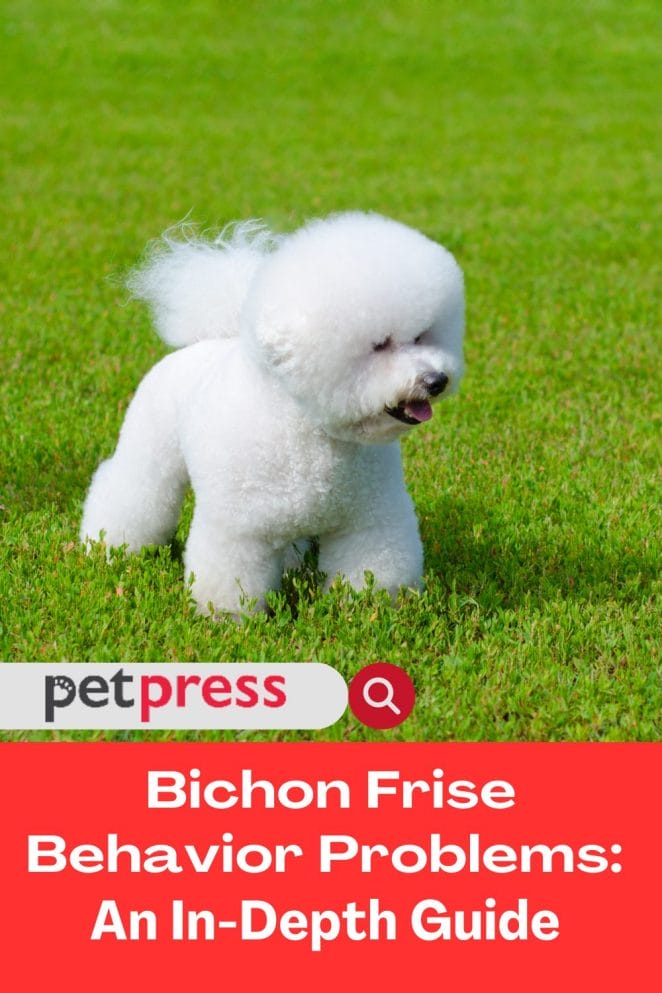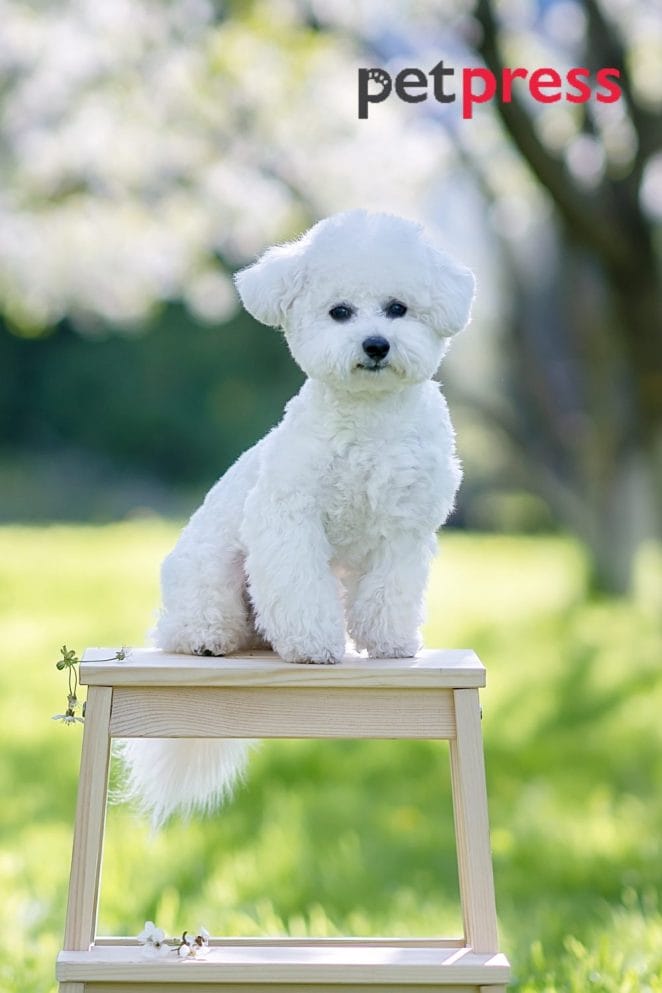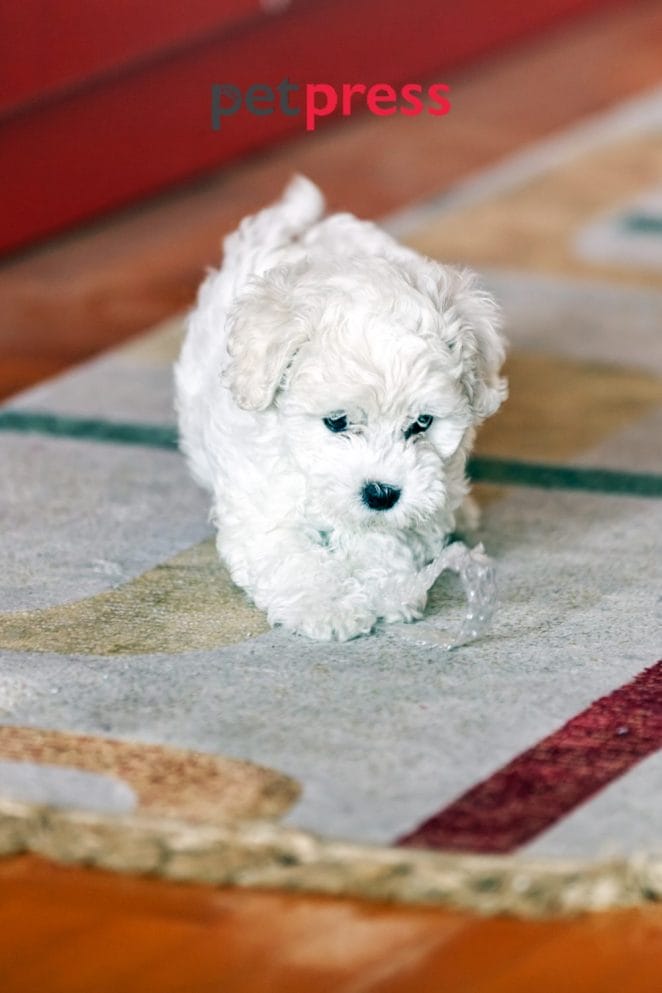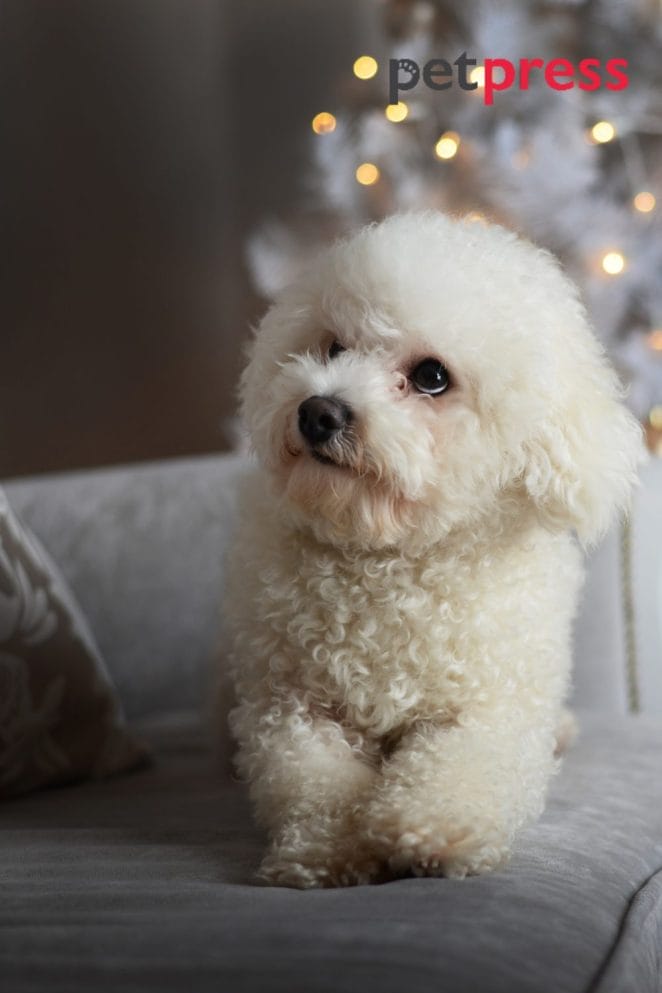
Welcome, pet parents! Let’s talk about our oh-so-adorable but sometimes headstrong Bichon Frises. Known for their fluffy white coats and cheerful nature, these furballs occasionally exhibit puzzling Bichon Frise behavior problems.
Interesting Facts About Bichon Frise
Bichon Frises are generally characterized as friendly, playful, and sociable dogs. They love to be the center of attention and are known for getting along well with other animals and children.
Did you know Bichon Frises have a rich and interesting history? Originating from the Mediterranean region, these little bundles of joy were favorites of the Italian nobility in the 14th century. They’ve even appeared in the artwork of renowned painters like Francisco de Goya!
Bichon Frises are also renowned for their hypoallergenic coats. That’s right. These fluffy balls are perfect for those with allergies, as they are less likely to trigger allergic reactions.
Despite their small size, don’t be fooled. Bichons are incredibly agile and energetic. They were initially bred for companionship but were also excellent in agility competitions.
One of the most distinguishing features of Bichon Frises is their ‘powder puff’ look. They have a double coat with a soft and dense undercoat and a coarse outer coat, giving them that distinct fluffy appearance.
Finally, it’s worth noting that Bichon Frises are known for their longevity. With proper care and a healthy lifestyle, these pups can sometimes live up to 15 years or even longer!

Common Bichon Frise Behavior Problems
Despite their friendly nature, some common behavior problems may crop up with your Bichon Frise. These can include separation anxiety, stubbornness, and barking.
Separation anxiety can manifest as destructive behavior when left alone, while stubbornness may be displayed when they decide not to follow commands. Further, their enthusiastic nature can sometimes lead to excessive barking.
- Separation Anxiety: Bichon Frises are companion dogs with strong attachments to their families. Consequently, they can experience separation anxiety when left alone, leading to destructive behaviors such as chewing on furniture or excessive barking.
- Stubbornness: Although they’re typically friendly and playful, Bichon Frises can be stubborn. This can manifest in various ways, such as resisting commands or ignoring recall.
- Excessive Barking: Bichon Frises are known for their lively and energetic nature, which can sometimes result in excessive barking. This is often a sign of boredom or anxiety.
- House Training Issues: Bichon Frises can sometimes be challenging to house train, particularly if they need to be consistently rewarded for correct behavior.
- Food Aggression: Some Bichons may show signs of food aggression, guarding their food or eating rapidly to prevent others from taking it.
Understanding and addressing these behavior problems early can help foster a harmonious relationship with your fluffy friend. You can help your Bichon Frise become a well-behaved and delightful companion with patience, consistency, and love.

Causes of Behavior Problems
Lack of proper training can lead to stubbornness, while inadequate socialization may cause fear and anxiety in unknown situations. Separation anxiety is often a result of their innate friendly nature and desire to be close to their human companions.
There are several potential causes for the various behavior problems that your Bichon Frise may exhibit:
- Inadequate Training: Bichon Frises are known to be stubborn at times. This is usually a result of insufficient training. It’s important to start training them from a young age to ensure they understand commands and behave appropriately.
- Lack of Socialization: Bichons are naturally sociable creatures. If they’re not socialized adequately from a young age, they may develop fear and anxiety when faced with unfamiliar situations or people. This can lead to problematic behavior.
- Separation Anxiety: Bichon Frises love to be close to their human companions. If left alone for extended periods, they can develop separation anxiety. This can manifest in destructive behavior, excessive barking, or even depression.
- Boredom: Bichon Frises are energetic and intelligent dogs. They may resort to destructive behavior out of boredom if they don’t get sufficient mental and physical stimulation.
- Health Issues: Sometimes, changes in behavior can be a sign of an underlying health issue. If your Bichon Frise’s behavior changes suddenly, it’s best to check them by a vet to rule out any health problems.
Remember, your Bichon Frise’s behavior is a way of communicating with you. So, try to understand what they’re telling you and address the issue accordingly. You can prevent and manage these behavior problems effectively with the right approach.

Solutions to Bichon Frise Behavior Problems
The good news is that most Bichon Frise behavior problems can be rectified with patience and consistency.
For stubbornness, try positive reinforcement techniques during training. Excessive barking can be managed by ignoring the behavior until it quietens and rewarding it.
If your Bichon is dealing with separation anxiety, gradually desensitize them to being alone, starting with short periods.
If you’re facing behavior problems with your Bichon Frise, don’t fret! Here are some of the most effective solutions you can try:
Positive Reinforcement:
Bichon Frises responds well to positive reinforcement. This means rewarding them for good behavior, such as obeying a command or staying calm. Rewards can be treats, toys, or simple praise. Over time, they’ll associate these rewards with behaving well and be more likely to replicate them.
Consistent Training:
Consistency is critical when training your Bichon Frise. Stick to your rules and ensure everyone in your household does the same. Bichons can only understand if the rules keep changing, leading to more behavior problems.
Anxiety Reduction:
Separation anxiety is common in Bichons due to their friendly nature. Gradually increasing the time they spend alone can help them feel more secure. You can also provide them with comforting items, like clothing, to help soothe them.
Mental and Physical Stimulation:
Bichons are intelligent and energetic dogs. They need both mental and physical challenges to keep them occupied. Regular walks, playtimes, and puzzle toys can help prevent boredom and associated behavior problems.
Professional Help:
If you’re having trouble managing your Bichon Frise’s behavior problems, don’t hesitate to seek professional help. Dog trainers and behaviorists have the skills and knowledge to handle these issues effectively.
Patience and understanding are essential when managing Bichon Frise’s behavior problems. With the right approach, you can help your fluffy friend become the best they can be!

Conclusion
Tackling Bichon Frise’s behavior problems may seem daunting, but patience is vital. Consistent training, socialization, and heaps of love can help your Bichon become a well-behaved pup.
Helping your Bichon Frise navigate through their behavior problems is not just beneficial for them but also for you.
As their companion, you play a vital role in shaping their behavior. Guiding them through their issues ensures their well-being and strengthens your bond.
By addressing these problems, you can ensure your furry friend is happy and well-adjusted, providing you with a peaceful, harmonious living environment. More importantly, it enables you to truly appreciate the joy and companionship that a well-behaved Bichon Frise brings to your life!

FAQs
Your Bichon Frise may act out for various reasons, such as boredom, lack of training, or separation anxiety. It’s essential to understand the root cause to address it effectively.
Bichon Frises can sometimes exhibit a stubborn streak. This often stems from their intelligence and independence but can be managed with consistent training.
Try ignoring the barking until your Bichon Frise quiets down, then reward them. This can help them understand that quiet behavior gets rewarded.
Bichon Frises are friendly dogs who love being with their human companions. When left alone, they may experience separation anxiety. Gradual desensitization to being alone can help manage this.
Professional training classes can provide structure and techniques to help manage your Bichon Frise’s behavior problems.
Your experience matters! Share your Bichon Frise behavior stories and tips, or ask further questions in the comments below. We’re all in this together, navigating the joyous journey of pet parenthood!



GIPHY App Key not set. Please check settings